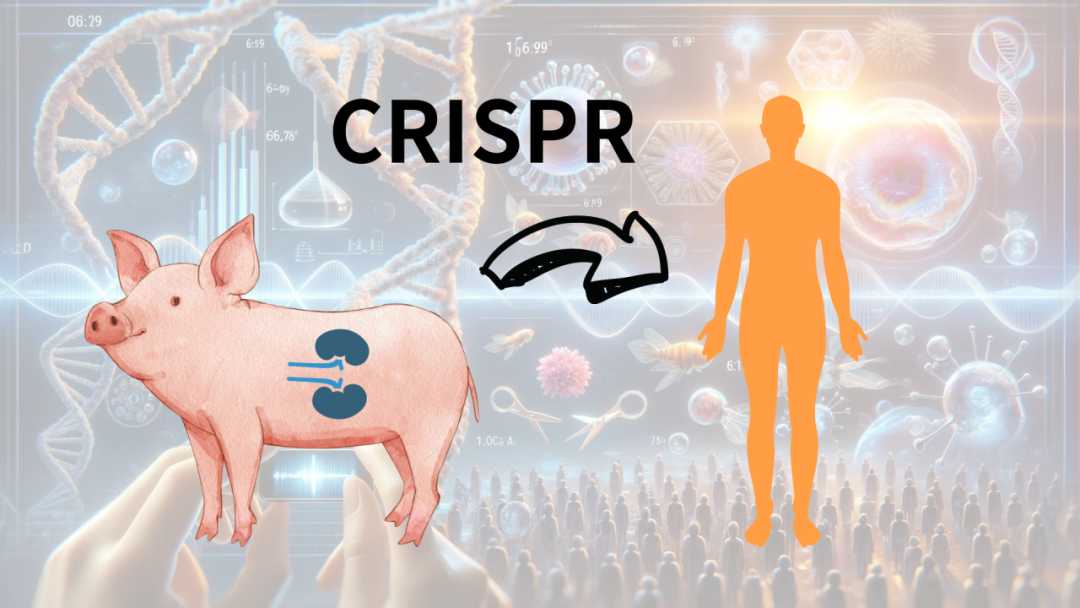Search for information
Groundbreaking: Gene-Edited Pig Organs Successfully Transplanted into HumansOrgan transplantation is a crucial treatment for many patients with end-stage organ failure. In China, there are over 300,000 people on the organ transplant waiting list, yet only about 16,000 organs are available annually. To address this global challenge, scientists have been exploring the use of gene-editing technology to modify pig organs for human transplantation.
May 19, 2025, 5:19 pm EDT

Source: Images from the Internet, if there is any infringement, please contact the removal of

In Argentina, asado is more than a meal—it’s a sacred social ritual where friends and family gather to celebrate outdoor cooking. Fueled by charcoal or wood (with wood being iconic in rural settings), this tradition revolves around grilling every part of the animal. Staples include sausages, steaks, short ribs, spare ribs, riblets, tenderloin, rump, and belly.more

South Korea’s Technological Ascent: From Economic Tiger to Multisectoral Powerhouse
Once part of Asia’s “Four Little Dragons,” South Korea has transformed from a developing nation into a global technological powerhouse. Renowned for its dominance in mechanical engineering, automotive manufacturing, and semiconductors, the country continues to diversify its technological strengths, investing heavily in emerging sectors such as aerospace, defense, nanotechnology, and healthcare.more

German Interior Minister Orders Ban on Entry for Undocumented Migrants
On May 7 local time, Alexander Dobrindt, the newly appointed German Interior Minister, issued an order to deny entry to undocumented migrants at the German border, including asylum seekers. Dobrindt announced his decision to revoke the 2015 directive that allowed undocumented migrants from third countries to enter Germany, aiming to reduce the number of illegal immigrants, and he stated that the current number of illegal immigrants in Germany remains unacceptably high.more

MLB Players' Participation in 2028 LA Olympics Remains Uncertain
The preparations for the return of baseball to the 2028 Los Angeles Olympics are underway, but a key issue remains unresolved: whether Major League Baseball (MLB) players will participate. Casey Wasserman, the president of the Los Angeles 2028 Olympic Organizing Committee, has started to clear the obstacles for the highly - anticipated return of baseball. Dodger Stadium has been chosen as the venue, but the big question of whether MLB stars will play is still up in the air.more

Tom Yum Kung Soup, also known as Tom Yam Soup or Dong Yan Soup, is a famous Thai soup, a typical Thai dish, and one of the world's top ten soups. In Thai, "Tom Yum" means sour and spicy, and "Kung" means shrimp, so it is a sour and spicy shrimp soup. This soup is characterized by the use of unique Thai ingredients such as lemon leaves,more

Flag Football Set to Debut at 2028 LA Olympics
The US Olympic & Paralympic Committee is expanding its portfolio with the addition of flag football. On Thursday, USA Football was officially designated as the national governing body, joining the ranks of those for track and field, swimming, and gymnastics. This marks a significant milestone for flag football as it readies for its Olympic debut in 2028 in Los Angeles.more

Rent a Country: Liechtenstein Offers Its Throne for Hire
In a rather extraordinary move, Liechtenstein, a tiny yet prosperous principality nestled between Switzerland and Austria, has made an unconventional offer to the world. Since 2011, the country has been available for rent at a price of £40,000 per night. This unique proposition allows individuals to experience a taste of royalty and assume the role of the "temporary king" of Liechtenstein.more

"Music Capital" Vienna: A Timeless Melting Pot of Melodies
Vienna, the capital city of Austria, has long held the prestigious title of the "Music Capital" of the world. This enchanting city, nestled on the banks of the Danube River, has been a cradle of musical genius for centuries.more

